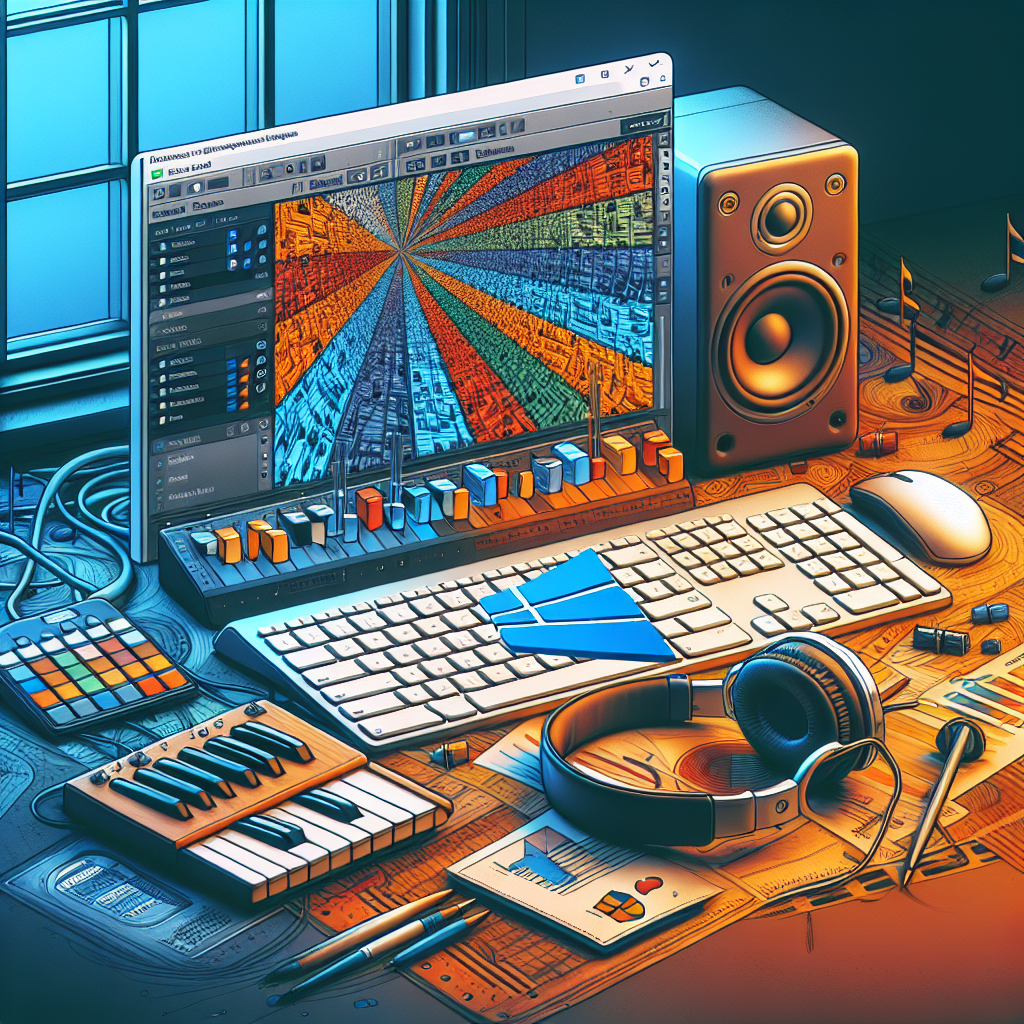Yes, you can become a music producer without a degree. Practical skills and experience are essential in the music industry.
Many successful music producers have established careers without formal education. While a degree can be beneficial, it is not a requirement to excel in this field. Aspiring music producers can develop their talent, learn from mentors, and gain experience through internships and hands-on projects.
What truly matters in music production is creativity, dedication, and a strong work ethic. By honing your craft and building a strong portfolio, you can succeed as a music producer without a degree. With determination and passion for music production, you can carve out a fulfilling career in this competitive industry.
Exploring Music Production Without A Degree
Self-taught Paths To Success
Music production doesn’t always require a formal education. Many successful music producers have taught themselves through online resources, tutorials, and hands-on practice.
Importance Of Practical Experience
Hands-on experience is vital in music production. Learning through trial and error helps develop skills and creativity that are essential for a successful music producer.

Credit: www.slickaudio.com
Building Your Skill Set
It is possible to become a music producer without a degree by focusing on building a strong skill set. This involves mastering key aspects of music production that are essential for success in the industry.
Learning The Basics Of Music Theory
Understanding music theory provides a solid foundation for music production. Begin by grasping fundamental concepts such as notes, scales, and chords to enhance your musical knowledge.
Mastering Digital Audio Workstations
To produce music effectively, mastering Digital Audio Workstations (DAWs) is crucial. Learn to navigate software like Ableton Live or FL Studio to create and manipulate sounds.
Navigating The Music Industry
When it comes to navigating the music industry, the path to becoming a successful music producer can seem daunting, especially without a formal degree. However, with the right approach, it is possible to excel in this competitive field by honing your skills, staying updated on industry trends, and building a strong network of connections.
Networking And Building Connections
Networking is vital in the music industry. Building relationships with other creative professionals, artists, and industry insiders can open doors to new opportunities and collaborations. Attending industry events, joining online communities, and engaging with fellow music producers can help you expand your network and gain valuable insights.
Understanding Industry Trends
Staying abreast of industry trends is essential for success as a music producer. By keeping up with the latest technological advancements, production techniques, and musical styles, you can position yourself as a forward-thinking and adaptable producer, ready to meet the evolving needs and preferences of artists and audiences. Embracing innovation and remaining versatile can set you apart in a dynamic industry.

Credit: www.facebook.com
Showcasing Your Talent
Do you dream of becoming a music producer, but don’t have a degree? The good news is that a degree is not always necessary to pursue a successful career in music production. What truly matters is your talent and how you showcase it to the world. In this article, we will explore different strategies for showcasing your talent as a music producer, from creating a strong portfolio to utilizing online platforms for exposure.
Creating A Strong Portfolio
To show the world what you’re capable of as a music producer, it’s essential to create a strong portfolio. Your portfolio should contain a selection of your best works that highlight your skills, creativity, and versatility. Whether you specialize in a specific genre or have a wide range of musical styles, curating a diverse portfolio will demonstrate your ability to adapt to different projects.
Consider organizing your portfolio in an easy-to-navigate format, making it accessible for potential clients and collaborators. You can create a dedicated section on your website, upload your tracks onto popular music platforms, or even create a SoundCloud profile to showcase your work. When adding your tracks, make sure to provide relevant details, such as the type of project, genre, and any notable achievements or recognition.
Utilizing Online Platforms For Exposure
In today’s digital age, the internet provides countless opportunities for music producers to gain exposure. Online platforms such as YouTube, SoundCloud, and Bandcamp have become powerful tools for showcasing your talent to a wide audience.
Upload your tracks to these platforms and take advantage of tagging options to reach your target audience effectively. Engage with your viewers and build a community by replying to comments, collaborating with other artists, or participating in forums related to music production. The more active you are online, the more visibility you will gain in the music industry.
Overcoming Challenges And Finding Success
When it comes to a career in music production, many people believe that a degree is essential. However, the truth is that you can absolutely become a successful music producer without a formal education. While there may be challenges along the way, with the right mindset, persistence, and adaptability, you can overcome them and find success in the music industry.
Adapting To Technological Advancements
In today’s digital age, technology plays a crucial role in the music production industry. As a music producer without a degree, it is important to stay up-to-date with the latest advancements in recording software, equipment, and techniques. Embracing these changes, and consistently learning and adapting, will help you stay competitive in the ever-evolving music industry.
A few key areas to focus on when adapting to technological advancements include:
- Recording Software: Familiarize yourself with popular digital audio workstations (DAWs), such as Logic Pro, Ableton Live, or Pro Tools. Learning the ins and outs of these software programs will allow you to create high-quality recordings and produce professional-sounding tracks.
- Studio Equipment: Stay informed about the latest hardware and equipment used in professional studios. This includes understanding the different types of microphones, mixing consoles, and monitors available, and how to utilize them effectively in your production process.
- Online Platforms: Take advantage of online platforms like YouTube, SoundCloud, and TikTok to connect with musicians, promote your work, and stay updated on current trends in the music industry.
Staying Persistent In Pursuing Opportunities
In the music industry, persistence is key. As a music producer without a degree, you may face a higher level of competition compared to those with formal education. However, with the right mindset and a strong work ethic, you can overcome this challenge and create your own opportunities.
Here are a few strategies to help you stay persistent in pursuing opportunities:
- Networking: Attend industry events, connect with like-minded musicians, and build relationships with other professionals in the music industry. These connections can lead to collaborations, referrals, and opportunities for exposure.
- Creating a Portfolio: Build a portfolio of your work to showcase your skills and talents. This can include producing tracks for local artists, creating remixes, or even scoring music for films or video games. Having a strong portfolio will make you more appealing to potential clients and collaborators.
- Continuous Learning: Never stop learning and improving your craft. Take advantage of online tutorials, courses, and workshops to enhance your skills and knowledge. The more you invest in your own growth, the more opportunities will come your way.
Remember, success as a music producer without a degree is attainable. With dedication, adaptability, and persistence, you can overcome challenges, find your place in the industry, and create a fulfilling and lucrative career in music production.

Credit: ise.edu.al
Frequently Asked Questions On Can You Be A Music Producer Without A Degree
Can You Become A Music Producer Without A Degree?
Yes, you can become a successful music producer without a degree. While formal education can be beneficial, many renowned producers have achieved success with self-taught skills and real-world experience. Dedication, passion, and networking are crucial for building a successful career in music production.
How Can I Become A Music Producer Without A Degree?
To become a music producer without a degree, focus on developing your skills and knowledge. Start by learning music production software, experimenting with different genres, and collaborating with other musicians. Additionally, building a strong network in the industry, attending workshops and seminars, and staying updated with the latest trends can help you succeed.
Can I Learn Music Production Online Without A Degree?
Absolutely! Thanks to the internet, there are plenty of online resources available to learn music production. Platforms like YouTube, online courses, tutorials, and forums offer a wealth of information and guidance. By dedicating time and effort, you can learn music production online and gain the necessary skills to succeed in the field.
Do Music Producers Need A Formal Education?
While a formal education can provide a solid foundation, it is not a prerequisite for becoming a music producer. Many successful producers have learned through self-study, practice, and real-world experience. What matters most is your dedication, passion, creativity, and ability to adapt to the ever-changing music industry.
Conclusion
Ultimately, pursuing a formal degree can be beneficial, but it is not the only path to success as a music producer. Many successful producers have flourished without a traditional education. It’s more about passion, dedication, and building a strong network that can help you thrive in the industry.
Keep learning, networking, and honing your skills to make your mark as a music producer.